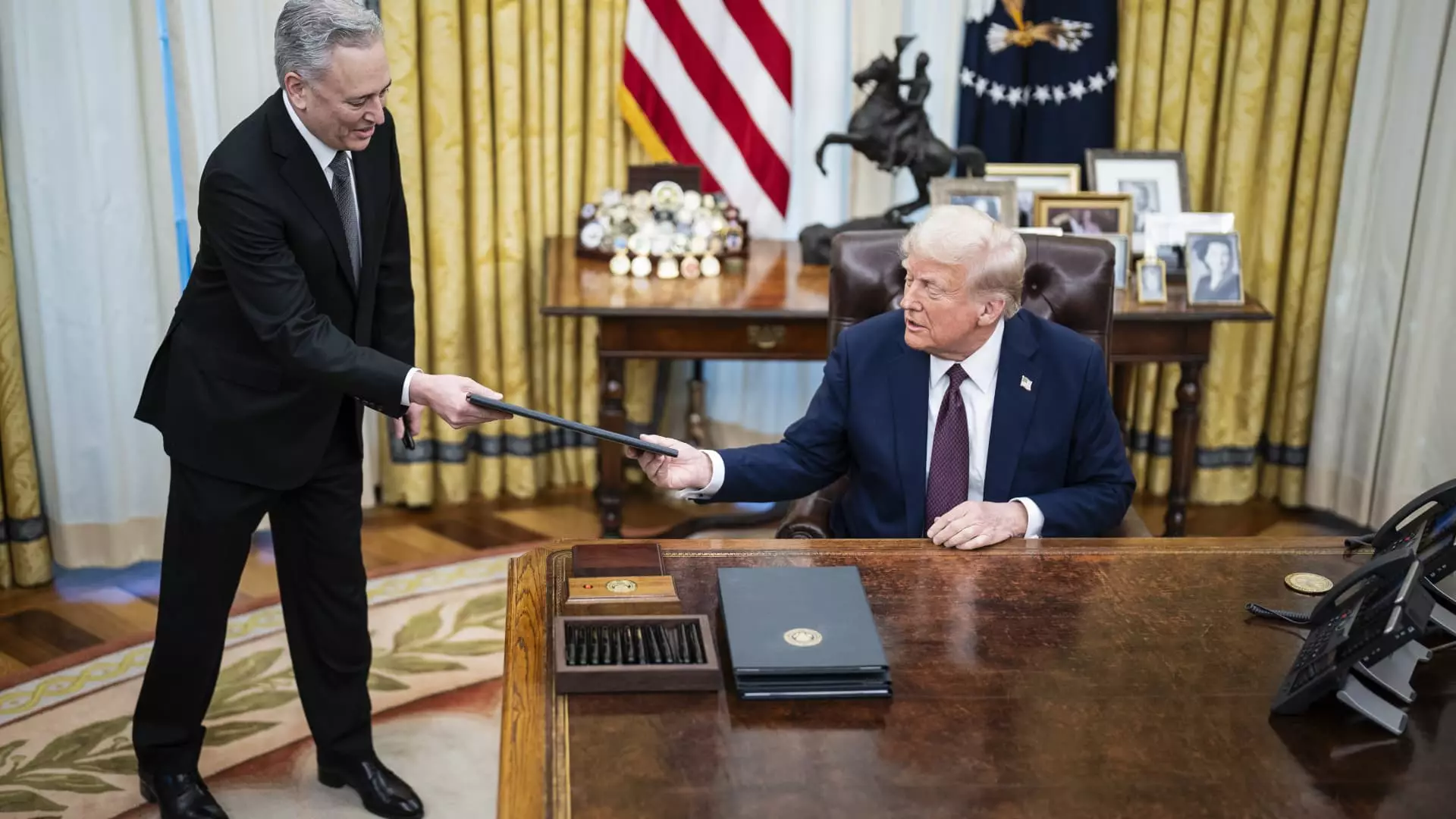In a groundbreaking move for digital currencies, President Donald Trump has officially established a Strategic Bitcoin Reserve, a pivotal message that underlines the United States’ commitment to the burgeoning field of cryptocurrencies. This executive order, signed on a significant Thursday, marks not just an administrative decision but a broader paradigm shift in U.S. financial policy, particularly with regard to digital assets.
The new reserve is instructed to rely solely on bitcoin acquired through criminal and civil forfeiture, thereby eliminating any potential financial strain on taxpayers. This approach presents an intriguing model for how governments can leverage private digital assets without dipping into public funds. As noted by White House Crypto and AI Czar David Sacks, the U.S. currently holds an immense trove of around 200,000 bitcoin, a figure yet to be thoroughly audited. The vision is clear: establish a voluntary system where these assets can serve as a stable financial bedrock, much like gold in traditional markets.
The Implications of a Permanent Store of Value
Trump’s directive prohibits the sale of bitcoins from this newly minted reserve, rebranding them as lasting capital rather than expendable assets. This notion of creating a U.S. Digital Asset Stockpile under the Treasury’s management further solidifies the government’s intent to treat cryptocurrencies not merely as speculative investments, but crucial components of the national financial landscape.
In doing so, the administration sends a resounding message that bitcoin should be recognized as a credible store of value — an assertion that could reshape institutional perceptions toward cryptocurrencies. Nic Carter, a prominent figure in the industry, reflects this sentiment by stating that a U.S. endorsement solidifies bitcoin’s standing as a notable global asset. As he puts it, “the U.S. is clearly the most important nation in the world, and so their stamp of approval really does a lot for bitcoin.”
Concerns Amidst Celebration
While the establishment of the Strategic Bitcoin Reserve is largely met with enthusiasm, not all voices within the crypto community share this optimism equally. Trump’s mention of including other cryptocurrencies—like ether, XRP, and Cardano—has sparked skepticism among hardened bitcoin proponents. Tyler Winklevoss, a vocal bitcoin billionaire, asserts that bitcoin stands alone in its qualifications for such a strategic reserve. This division within the crypto cohort underscores a fundamental debate about the nature of digital assets and what should constitutionally merit classified reserve status.
Moreover, market reactions to the announcement were immediate, with leading cryptocurrencies, including SOL and ADA, experiencing notable declines following Trump’s broader crypto asset mentions. This volatility underscores the active discourse surrounding the legitimacy of various altcoins when held up against bitcoin’s established status, potentially inviting further instability in an already speculative marketplace.
The Future of Bitcoin and Institutional Trust
Ryan Gilbert, a fintech investor, provides insightful commentary on how this move could amplify trust in bitcoin among institutions. By separating it from a sea of other altcoins, bitcoin may achieve a clearer identity as the flagship digital asset. Such differentiation could facilitate broader adoption and acceptance, particularly as financial institutions look for stable, regulatory-backed investments in the cryptocurrency vein.
However, Gilbert also highlights the importance of responsible management of the reserve. He cautions against any trading activities that could introduce volatility into the market. The essence of a reserve is long-term stability, a critical distinction that government officials must heed to avoid strategies that inadvertently fuel speculation and market manipulation.
Setting the Stage for Global Leadership
Sacks has described this landmark order as a stepping stone towards establishing the U.S. as the global “crypto capital.” The strategic reserve serves not only as a declaration of intent but also as an invitation for other nations to reconsider their stances on digital assets. By taking such a proactive approach, the U.S. sets a precedent that could encourage more countries to follow suit, potentially reshaping international perspectives on cryptocurrency governance.
President Trump’s actions spotlight an exciting chapter in the evolution of digital assets. With the Strategic Bitcoin Reserve, the U.S. is setting up a structural framework that could redefine financial stability in the crypto era while reinforcing the belief that bitcoin is not just a fleeting trend, but a formidable asset for the future.

